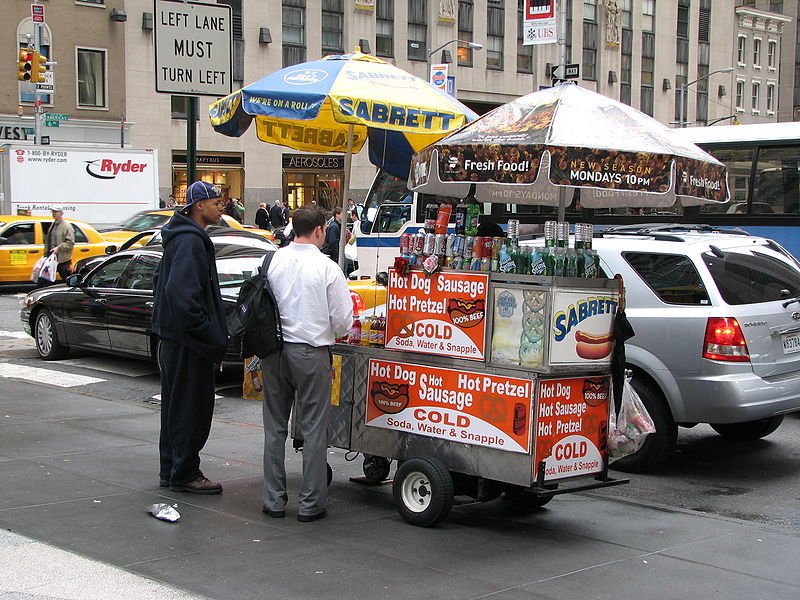At the urging of the USDA, Marathon Enterprises, Inc. has issued a class 1 recall on over 7 million pounds of hot dog products, most of which bore the Sabrett brand name, Reuters reports.
According to the USDA, a class 1 recall indicates a “reasonable probability” that a product will cause “serious, adverse health consequences or death.
Thus far, the only reported “adverse health consequence” resulting from the recalled products is a “minor oral injury” one consumer sustained while eating one of the hot dogs, in which a number of buyers have allegedly found bone and cartilage in the meat.
The recall was made “as a voluntary measure and in an abundance of caution,” Marathon Enterprises, which owns a registered trademark on Sabrett, said in a statement on its website.
The products were produced at a Marathon meat processing plant in the Bronx between March 17 and July 4, with sell-by dates ranging from June 19 to October 6, 2017. They were sold nationwide to “retailers and institutions.” Many wound up under the blue-and-yellow umbrellas of Sabrett’s New York pushcarts.
“As a fourth-generation, family-owned company, Sabrett takes its responsibility to provide safe foods very seriously with a robust internal food safety program,” the aforementioned statement said. “Sabrett deeply regrets any concern or inconvenience this has caused its loyal customers.”
Sabrett has received an “Excellent” rating and a Level 3 certification from Safe Quality Food Institute. According to the Sabrett website, “Level 3 is the strictest compliance level requiring highly detailed monitoring and verification of all facets of the company and production.” The distinction places Sabrett in “an exclusive group of Domestic Food Facilities,” the website says.
The statement continues on to say that “Sabrett is working closely with the USDA to effectively communicate to its customers with regards to this recall and to assure those customers that the recalled products are no longer in stores.” Sabrett then thanks its “many valued customers” for their “continued loyalty.”
Many renowned New York culinary establishments serve Sabrett franks, including Gray’s Papaya and Katz Deli, which were ranked number 4 and number 1 respectively on TheDailyMeal.com’s list of “The 5 Best Hot Dogs in New York City.”
Sabrett products can also be found at ten professional sports stadiums and 11 college sports facilities throughout the nation, as well as at concert venues, golf courses, zoos, waterparks, amusement parks, convention centers, and ski parks. The famous franks are even served at Fort Lee, a US Army base in Virginia.
Marathon Enterprises, Inc., which owns the Sabrett name, was founded in 1926, and is headquartered in Englewood, New Jersey. In addition to hot dogs, the company produces hot sausage, kielbasa, salami, pastrami, corned beef, and garlic rings products, most of which are not sold under the name Sabrett.
However, the blue and yellow Sabrett insignia graces condiments (including onions in sauce, sauerkraut, and spicy brown mustard), hamburgers, and cocktail appetizers.
Sabrett’s name has branded itself into American culture to such a degree that Marathon can afford to recall seven million pounds of meat products, out of an “abundance of caution,” without risking its position at the heart of the American food industry.
With just one minor hazard recorded, the recall is likely more preemptive than reactionary. A similar preemptive recall was placed on a number of breaded chicken products produced by Tyson Foods and others, which contained “undeclared allergens.” In that case as well, no consumer suffered serious health trauma as a result of eating the products, but the companies recalled them to prevent potential health scares.
Though some may attribute these recent recalls to regulatory skittishness, a “better safe than sorry” principle is probably applicable. There is something to be said for taking dangerous products off the shelves before consumers suffer, rather than because buyers are suffering.
































Comment Template